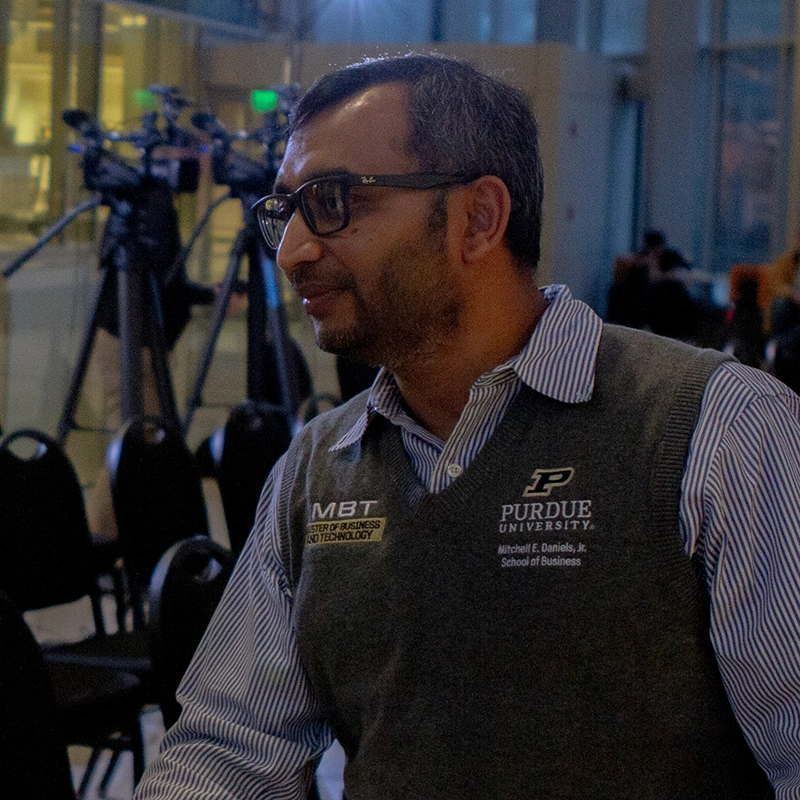
A new master’s degree program at Purdue’s Mitchell E. Daniels, Jr. School of Business will prepare the next generation of graduates ready to lead teams and organizations in the digital economy.
The Master of Business and Technology (MBT), a 12-month, 36-credit program on the West Lafayette campus, leverages Purdue’s strengths in STEM with the Daniels School’s strong reputation at the intersection of business and technology. Students can choose from four elective concentrations in Robotics and Automation, Artificial Intelligence Innovations, Technology Commercialization and Computational Finance.

The program also includes a capstone course that will apply students’ understanding of coursework in their unique employment context. The capstone will be particularly useful in commercializing technology, as students will be shown how to take their own products to market successfully.
“I’m excited about the potential of this new program,” says Jim Bullard, Dr. Samuel R. Allen Dean of the Daniels School. “Our university is proud of its top 10 national ranking among the most innovative schools. Programs like the Master of Business and Technology will only serve to enhance that reputation by producing graduates who will mold and deliver companies and products we can’t even imagine today.”
The program will appeal to students with undergraduate STEM degrees, particularly those who aspire to be entrepreneurs or to lead teams that build technology-driven business solutions. The first MBT class is scheduled to begin in fall 2024.
“Our core design principle for the program is technology-driven business solution ideation and execution,” says Mohammad Rahman, Daniels School Chair in Management and the inaugural academic director of the MBT program. “In addition to learning how to identify and monetize emerging opportunities in the business-technology interface, students also will discover how to critically evaluate the societal and economic implications of the business decisions they make and advocate for ethically sound business practices.
“The program’s curriculum is crafted for the digital age and will give graduates the most cutting-edge knowledge in a rapidly evolving business world.”
Rahman adds the MBT program is different from the traditional MBA. Typically two years in length, MBA programs tend to teach students ways to protect market share through cost leadership or product differentiation, where firms create a product, market it and sell it to customers. Value is made upstream and consumed downstream, similar to water in a pipe, and there is little to no opportunity for new technologies to create sustained advantage in the business model or act as a multiplier.
The one-year MBT program differs significantly, tailoring education to create and capture value from the digital transformation that is permeating through every company and every industry.